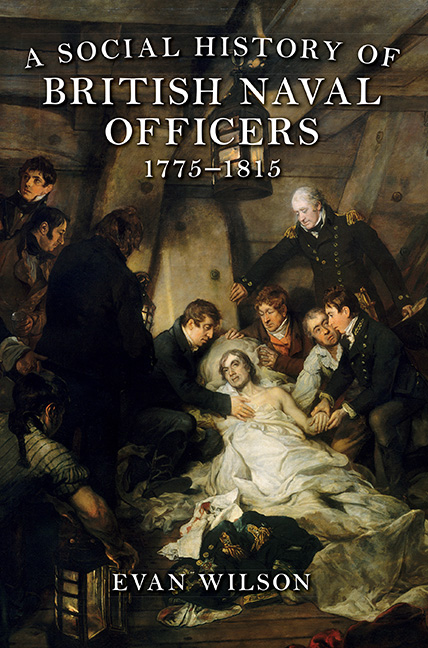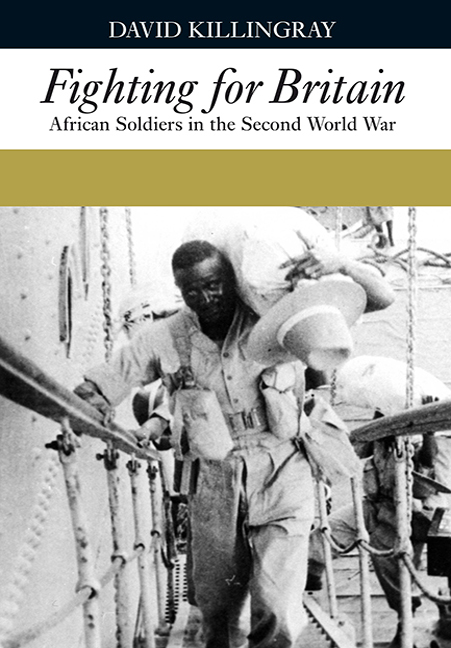Refine search
Actions for selected content:
15418 results in Military history
Illustrations
-
- Book:
- British Prisoners of War in First World War Germany
- Published online:
- 04 July 2017
- Print publication:
- 27 April 2017, pp viii-ix
-
- Chapter
- Export citation

A Social History of British Naval Officers, 1775-1815
-
- Published by:
- Boydell & Brewer
- Published online:
- 20 April 2017
- Print publication:
- 17 February 2017

Scotland's Second War of Independence, 1332–1357
-
- Published by:
- Boydell & Brewer
- Published online:
- 20 April 2017
- Print publication:
- 21 October 2016

Fighting for Britain
- African Soldiers in the Second World War
-
- Published by:
- Boydell & Brewer
- Published online:
- 13 April 2017
- Print publication:
- 18 February 2010
List of Maps
-
- Book:
- The Origins of the First World War
- Published online:
- 28 May 2018
- Print publication:
- 13 April 2017, pp vii-viii
-
- Chapter
- Export citation
Contents
-
- Book:
- The Origins of the First World War
- Published online:
- 28 May 2018
- Print publication:
- 13 April 2017, pp v-v
-
- Chapter
- Export citation
Frontmatter
-
- Book:
- The Origins of the First World War
- Published online:
- 28 May 2018
- Print publication:
- 13 April 2017, pp i-iv
-
- Chapter
- Export citation
Acknowledgements
-
- Book:
- The Origins of the First World War
- Published online:
- 28 May 2018
- Print publication:
- 13 April 2017, pp xi-xii
-
- Chapter
- Export citation
1 - Introduction
-
- Book:
- The Origins of the First World War
- Published online:
- 28 May 2018
- Print publication:
- 13 April 2017, pp 1-24
-
- Chapter
- Export citation
Bibliography
-
- Book:
- The Origins of the First World War
- Published online:
- 28 May 2018
- Print publication:
- 13 April 2017, pp 239-253
-
- Chapter
- Export citation
2 - Security and Expansion: The Great Powers and Geopolitics, 1871–1914
-
- Book:
- The Origins of the First World War
- Published online:
- 28 May 2018
- Print publication:
- 13 April 2017, pp 25-94
-
- Chapter
- Export citation
7 - Conclusion
-
- Book:
- The Origins of the First World War
- Published online:
- 28 May 2018
- Print publication:
- 13 April 2017, pp 230-238
-
- Chapter
- Export citation
Preface to the Second Edition
-
- Book:
- The Origins of the First World War
- Published online:
- 28 May 2018
- Print publication:
- 13 April 2017, pp ix-x
-
- Chapter
- Export citation
3 - The Military, War, and International Politics
-
- Book:
- The Origins of the First World War
- Published online:
- 28 May 2018
- Print publication:
- 13 April 2017, pp 95-135
-
- Chapter
- Export citation
6 - The July Crisis
-
- Book:
- The Origins of the First World War
- Published online:
- 28 May 2018
- Print publication:
- 13 April 2017, pp 210-229
-
- Chapter
- Export citation
Index
-
- Book:
- The Origins of the First World War
- Published online:
- 28 May 2018
- Print publication:
- 13 April 2017, pp 254-259
-
- Chapter
- Export citation
5 - The World Economy and International Politics before 1914
-
- Book:
- The Origins of the First World War
- Published online:
- 28 May 2018
- Print publication:
- 13 April 2017, pp 180-209
-
- Chapter
- Export citation
4 - Public Opinion and International Relations
-
- Book:
- The Origins of the First World War
- Published online:
- 28 May 2018
- Print publication:
- 13 April 2017, pp 136-179
-
- Chapter
- Export citation
List of Illustrations
-
- Book:
- The Origins of the First World War
- Published online:
- 28 May 2018
- Print publication:
- 13 April 2017, pp vi-vi
-
- Chapter
- Export citation

Naval Families, War and Duty in Britain, 1740-1820
-
- Published by:
- Boydell & Brewer
- Published online:
- 31 March 2017
- Print publication:
- 17 November 2016
